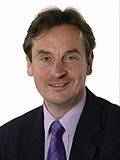Roll up for the hottest show in town
Date published: 11 December 2009

Chris Davies MEP
The future of the planet is currently being debated by world leaders at the Copenhagen climate change conference. Delegates from 192 countries have descended on the Danish city, including 100 leaders, to discuss emission cuts and financial measures to combat climate change.
Among them is Oldham’s Liberal Democrat Euro-MP Chris Davies who is believed to be the only British parliamentarian present during the opening week.
Here, he gives an insight into the two-weeks of talks that are aimed at paving the way for a new global treaty on climate change.
It has been billed as the most important conference in history but it certainly won’t be remembered for the splendour of its location.
Outside we could be in the North West.
The Danish weather is dull and wet, but not cold; 2009 is on course to become one of the warmest years since records began.
Inside it’s more like the West Midlands. Think of the international exhibition centre at Birmingham and you have an idea of Copenhagen’s Bella Centre.
It’s modern, functional, but not glamorous.
There’s space here for the 5,000 journalists in attendance, for exhibition stands, and for refreshment areas that keep the coffee flowing in cardboard cups.
Most important, there are lots and lots of meeting rooms, the majority built from simple partitions that will be torn down when the conference ends.
Ministers may deliver public statements in the aircraft hangar of a room used for plenary sessions but the real business takes place behind the partition walls.
It’s said that more than 30,000 people are accredited to attend but only a small proportion will be involved in the actual negotiations.
This is a place where those involved in climate change issues across the world get a chance to exchange ideas.
Environmental activists mix with executives from the oil and power companies. University researchers come together with financiers.
There are scores of presentations on latest scientific findings, demonstrations of new technology, and discussions about action that will make a difference and create jobs too.
With the evidence so strong there is not much room here for scepticism.
It’s true that even the UN scientific panel says it is only 90% sure that the global warming taking place is man-made.
But what would you do if the pilot of the plane you were about to board announced that it had a fault and there was a 90% chance that it would crash?
We can’t afford to take the risk that the science is wrong.
Some 192 governments are represented in Copenhagen but it’s impossible to have detailed negotiations between so many participants so they have organised themselves into groups.
There is the League of Arab States, the Alliance of Small Island States, the Coalition for Rainforest Nations, and several more. The European Union is the largest group of all.
In negotiations we speak with one voice, but that’s achieved only by daily sessions to thrash out positions agreed by all 27 EU nations.
There is a sense that our world is small and we are very dependent upon one another, but self-interest is strong.
The arguments are fierce even if the shorthand scientific jargon is hard to follow.
It will be costly to move away from dependence on power from fossil fuels, and there is also the principle of equity.
Does an American have the right to release more CO2 into our atmosphere than an African?
The poorer countries point their fingers at the wealthy: “We didn’t cause the problem. You got rich by burning fossil fuels. If you want us to be different then make a contribution.”
But their hand is weak; poorer nations know that they will increasingly experience climate change through water shortages, crop failures and mass movements of people.
The task is to persuade the world’s governments to agree by ‘consensus’ to take scores of measures that will prevent global temperatures rising by more than 2C.
Many scientists say that we must do more, that temperatures could rise by up to 6 degrees. And after that, who knows?
Europe’s largest power companies have adopted a plan for electricity production to be carbon free by 2050.
I asked the boss of one why he was taking this initiative when it wouldn’t increase his profits.
He replied: “I have a grandchild, and maybe she will have grandchildren of her own. I’m doing it for them.”
Do you have a story for us?
Let us know by emailing news@rochdaleonline.co.uk
All contact will be treated in confidence.
Most Viewed News Stories
- 1Man killed in M62 crash after car hits bridge at junction 19
- 2Abandoned shopping centre to be brought back to life as a banqueting hall
- 3GMP detain carjacker minutes after committing burglary in Rochdale
- 4The land has laid dormant for years, now £15m could help see it transformed
- 5How much council tax will go up in the Rochdale borough for each household
To contact the Rochdale Online news desk, email news@rochdaleonline.co.uk or visit our news submission page.
To get the latest news on your desktop or mobile, follow Rochdale Online on Twitter and Facebook.

